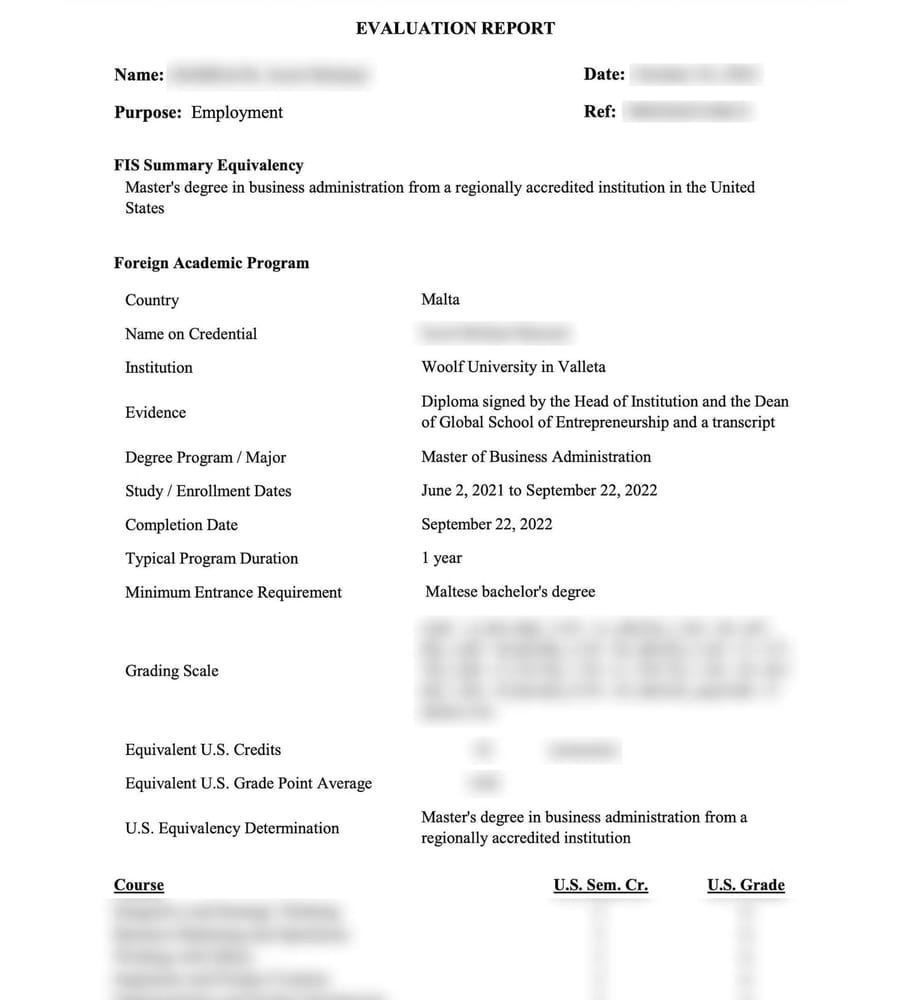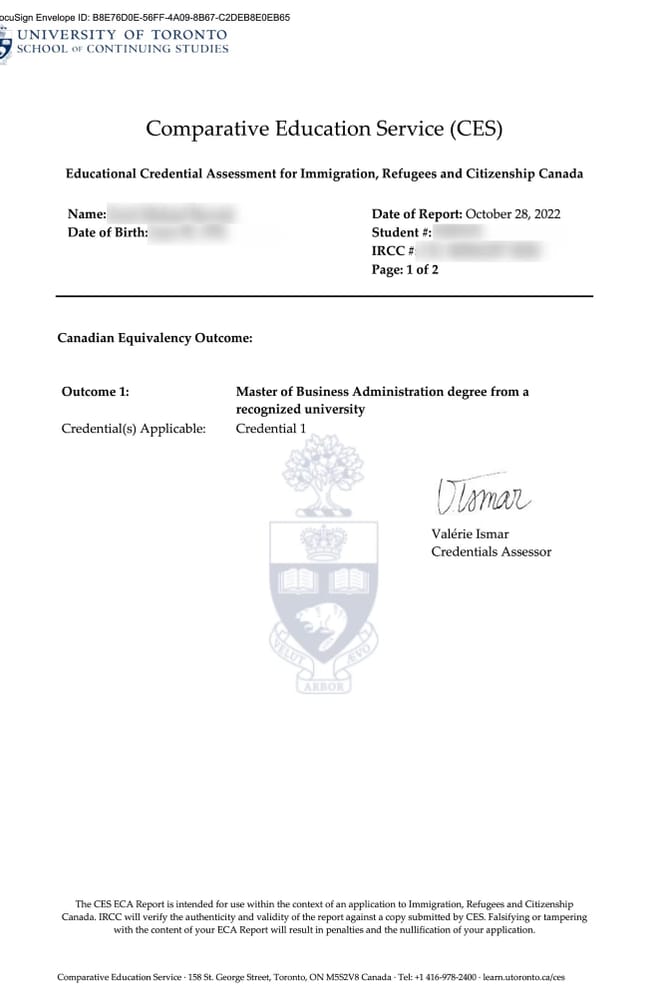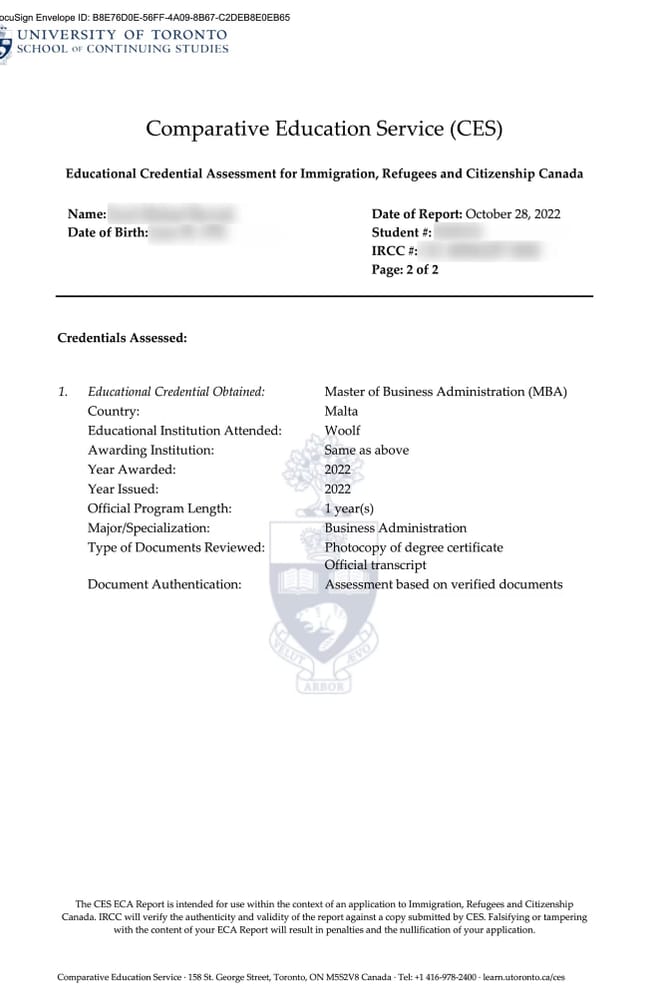Woolf is an accredited higher education institution in Europe.
There are 49 countries in the European Higher Education Area (EHEA).
Degrees issued in the EHEA are normally automatically recognized between all member countries, but final decisions are always made by the country.
EHEA countries use a credit system called ECTS – the European Credit Transfer and Accumulation System.
The ECTS system is the most widely recognized form of credit transfer in the world.
Degrees using the ECTS system are normally automatically recognized by receiving institutions around the world, including Canada and the United states.
Woolf issues degrees using the ECTS system.
Multiple Education Credential Assessment agencies have recognized Woolf master’s degrees as equivalent to US master’s degrees.
Woolf has been deemed “a recognized university” for purposes of immigration and citizenship in Canada.
Woolf is a collegiate higher education institution: all constituent member colleges benefit equally from Woolf’s accreditation and have the power to enroll students in their college in degrees.
A process whereby a neutral party evaluates whether a degree in one country is equivalent to a degree in another country.
There are two kinds of ECA: assessment for academic purposes and assessment for immigration purposes.
ECA for academic purposes evaluates the academic benchmarks of a degree in comparison with those in another country.
Foundation for International Services, a member of NACES.org since 1987, has evaluated Woolf. FIS deemed a master’s degree from Woolf to be equivalent to one “from a regionally accredited institution in the United States”.

ECA for academic purposes is used for further study such as those seeking to pursue a PhD.
ECA for academic purposes is also used for employment, and demonstrates to employment in a target country that a degree earned in another country meets their standards.
Yes. Program and credit evaluations of a Woolf graduate’s degree determined that the “student will have the United States equivalent of a master’s degree recognition.”
ECA for Academic purposes typically take 5-10 weeks to complete.
In some countries the government’s civil service evaluates degrees directly for immigration purposes, in other countries the government relies on one or more third-party evaluators.
Canada relies on third-party evaluators to perform ECA for both immigration and academic purposes.
Immigration evaluation consists of Academic Evaluation plus additional reviews (including primary and secondary school information). The time for a review is longer: 5-7 weeks for academic evaluation, but 10-30 weeks for immigration evaluation.


A Woolf degree should help with immigration. Countries vary in their specific policies, but degrees issued by Woolf are fully accredited degrees.
Online and offline degrees have the exact same accreditation in Europe, there is no difference.
Virtually all PhD programs require a master’s degree for admission, and because Woolf degrees are fully accredited degrees from Europe, they should fulfill this qualification for any university.
Ultimately, each PhD program has its own criteria, and the specific PhD advisor will often play a decisive role in the admissions process.
When selecting a PhD program, it is important that there is alignment between the subject of the master’s degree and the subject of the PhD.
ECTS (European Credit Transfer and Accumulation System) is the most sophisticated and globally recognized academic credit transfer system.
It is the official form of academic credit for the European Higher Education Area (49 countries have now joined).
All European countries recognized it because it was recognized by a large block of universities and countries.
Woolf files programs with European partners operating under the European Standards and Guidelines 2015. You can find the MS degree, for example, listed on the official website of the Malta Further and Higher Education Authority (MFHEA), which is co-funded by the Erasmus+ Program of the European Union – linked here.
Learn more about Woolf accreditation at https://woolf.university/legal/accreditation.
In Europe, Woolf is a Higher Education Institution and is not licensed as a “university,” which is a specially reserved term. As an accredited, fully licenced Higher Education Institution, Woolf is able to offer bachelor’s, master’s, and doctoral degrees with the same status as issued by a “university.” There is no difference in accreditation of the degree issued, and Canada recognizes Woolf as a “university.”
In the United States, Woolf University is incorporated and officially approved in the State of Wisconsin under Wis. Stats. § 440.52 (10)(a), with approval granted on August 15th, 2022 under the Educational Approval Program of the Wisconsin Department of Safety and Professional Services, which is the body providing state licensure for universities.
Woolf provides accredited degrees using the ECTS (European Credit Transfer and Accumulation System).
You can find the MS in Computer Science degree, for example, listed on the official website of the Malta Further and Higher Education Authority (MFHEA), which is co-funded by the Erasmus+ Programme of the European Union – linked here.
ECTS is used throughout 49 countries in Europe, and is the most widely recognized credit transfer system in the world.
ECTS degrees are typically automatically recognized both within the European Higher Education Area and by institutions in the US and Canada. The ECTS system is widely accepted because so many countries rely upon it.
All accreditation information about Woolf is available at https://woolf.university/legal/accreditation.
Because Woolf’s MS in Computer Science degree uses the ECTS system, it should be recognized by other universities around the world, including in the US, Canada, and across Europe.
Courses taken at Woolf will transfer to other institutions, depending on that school’s policies.
Immigration laws and procedures vary by the country you wish to study in or move to.
In some countries, the government evaluates degrees itself. In other countries, they hire that evaluation out to third-party evaluators.
Canada uses third-party evaluators, called credential evaluation services. They maintain a list of approved services here. For Canadian immigration purposes, Woolf students should use Comparative Education Services (CES), which is part of the University of Toronto and is an authorized evaluation service for the Canadian government. CES has deemed Woolf a “recognized university.”
The evaluation of academic credentials is only one part of the evaluation process for immigration. In Canada, for example, the academic evaluation might take 5-7 weeks, while the overall review of an applicant might take 10-30 weeks to complete.